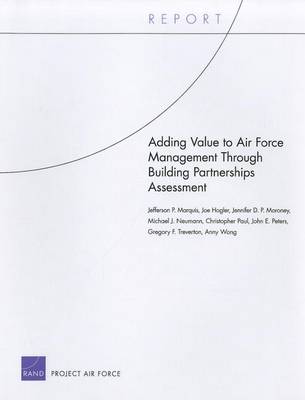Confronting an era of persistent global conflict with stable or declining defense resources, the United States needs partners to augment their own security-related capabilities and capacity. The U.S. Air Force has worked for many years with allies and friendly nations to build strong and enduring partnerships reinforce other nations' capacities both to defend themselves and to work in coalitions, and ensure U.S. access to foreign territories for operational purposes. The activities conducted by the Air Force range from training, equipping, and exercising with others to holding bilateral talks, workshops, and conferences and providing education. Yet, it is often challenging to specify how much and in what ways these activities have contributed to U.S. policy objectives. This report builds on prior RAND research that developed a conceptual framework for assessing the Air Force's security cooperation efforts. In this follow-up study, researchers worked with Air Force leaders to better understand and attempt to overcome certain obstacles to the implementation of RAND's proposed framework. This report presents the results of surveys of and focus groups with a variety of Air Force leaders on security cooperation assessment. It presents a refined framework, based on these results, that focuses on four questions-Why assess? What to assess? How to assess? Who should assess?-and provides examples of how the framework could be applied to two example Air Force programs, the Operator Engagement Talks and the Military Personnel Exchange Program. The authors conclude with a discussion of problems identified and recommend a four-part strategy for establishing a new, integrated approach to Air Force security cooperation assessment.
- ISBN10 0833050893
- ISBN13 9780833050892
- Publish Date 15 January 2011
- Publish Status Active
- Publish Country US
- Imprint RAND
- Format Paperback (US Trade)
- Pages 130
- Language English
